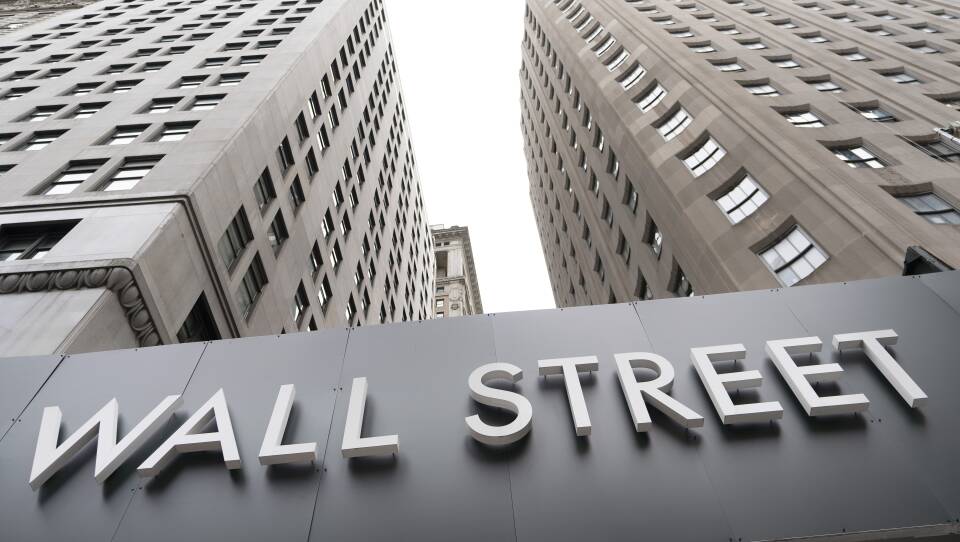The U.S. Department of Labor reports that the economy lost 140,000 jobs in December. The unemployment rate for the last month came in at 6.7 percent. GBH Morning Edition host Joe Mathieu spoke with Boston College economics professor Bob Murphy to learn more about the latest numbers from the Labor Department and get his outlook for 2021. The transcript below has been edited for clarity.
Watch: This [jobs] number is ugly at first blush. What are you seeing?
Mathieu: Interesting to see and not encouraging: leisure and hospitality had a massive decline. Private education was lower. Government employment was lower. Normally, we'd see some sort of seasonal uptick right around the holidays, even temporary hiring, Bob. We didn't get that this year.
Murphy: Right. Well, the numbers are adjusted for seasonality.
Mathieu: So you wouldn't see that even if it was Amazon hiring everybody?
Murphy: Exactly, it would only be the case if they went beyond that. And there was good reason to believe that we've seen some increase in warehousing jobs in the transportation sector, UPS [and] FedEx jobs. And, of course, the other major online retailers, again, adding to mainly warehousing operations. So I would expect that's in the numbers, but again, was not significant enough to boost things given the normal seasonal adjustments. One thing I'd like to mention or point out is this, I think, continues a pattern that we observed in some of the November data. The last numbers that we have for household spending were down in November for the first time in seven months. We'll get December's numbers later in January. So I think as we headed into the end of the year, there were clear warning signs that the economy was starting to stall, and I think this report certainly confirms that.
Mathieu: Interesting to see stock futures are holding positive. They've barely budged since this news came out, even though it's worse than Wall Street expected. Do we get back in a world where bad news on Main Street is good news on Wall Street because everyone's living by the Fed, they want more stimulus and they want continued low interest rates?
Murphy: Yeah, my guess on the market is this is being read as another argument for why, once the Biden administration takes office, we will be likely to see a stimulus bill. I think that's probably what's feeding the movement upward. We also have recently passed a stimulus bill that will start to kick in and I think will help to study the economy a bit. But I think the expectation now, particularly with what happened in Georgia on Tuesday with the Democrats now taking the Senate, that there will be a push for additional relief for the economy, and that's likely what's pushing markets upward.
Mathieu: Bob, I'm wondering where your thoughts are on the second half of this year, whether the rebound that a lot of people have been betting on will be put off by this slowdown?
Murphy: Well, as we headed into this this week, forecasts that I've seen were starting to get notched down a little bit as to where the year's numbers would come out. Now that we are likely to see a little more stimulus than had been in the cards prior to this week, I think that's going to help to boost growth, particularly in the first part of the year. As we get longer into the year, again, the major factor will be when the vaccine rollout is well underway — when are people going to be starting to feel confident about getting back out and going to restaurants, traveling [and] helping to bring back the service sector that really has been decimated. So I think that's really what's going to determine how it plays out. My expectation is if we get this vaccine rollout moving along and we improve the distribution issues that we've had, by the summer people will be more confident. We'll start to see things being at least semi-returning to normal. And at that point, I would expect the economy will get a boost, particularly through the service side of the economy.
Mathieu: It's a question of how quickly and whether we get back to where we were, I suppose. But, boy, a lot of people are talking about pent up demand. Wall Street thinks there's going to be an explosion the second half of the year. They could be getting beyond themselves a little bit.
Murphy: Yeah. So, again, I think what people are looking at there is the build up in household saving that's happened throughout the last seven [or] eight months now, basically doubling what the personal savings rate had been. That suggests that there will be the power there to really boost the economy moving ahead. I think if you look at the numbers and where the economy has been hit hardest, it's been the service sectors. The goods producing sectors are actually doing pretty well. Factories are operating at a pretty high rate right now. And if you look at the trade data that just came in this week, we ran the largest trade deficit that we've had since 1992, which seems to have been driven by imports of consumer goods such as cell phones, appliances [and] other kinds of products that are manufactured. So that's very different from a normal recession and particularly a normal recovery. Services usually are pretty steady and it's the manufacturing sector that lags. But I think that this pent-up demand could be there. Clearly, saving will not stay at the 14 percent level that we've seen.
Mathieu: Everybody wants to go out to eat, Bob.
Murphy: So there's going to be a rebound. I think that's in the cards. But again, I think it depends on people being confident being able to move back into the public spaces. And that's, again, dependent on the vaccine.





